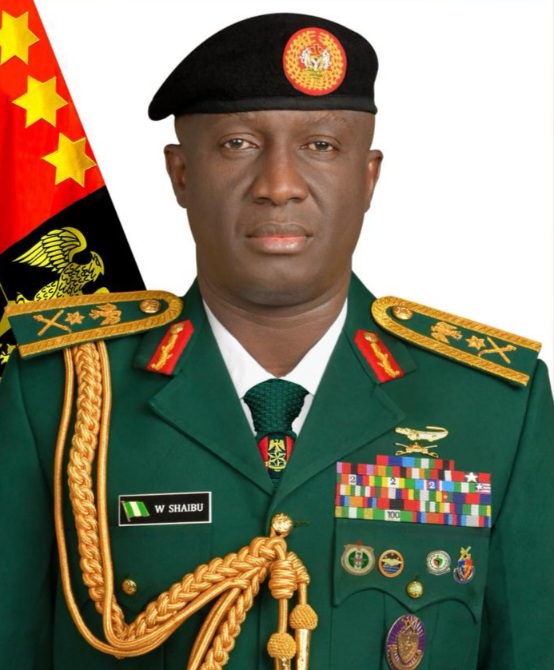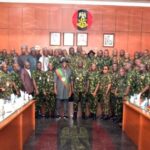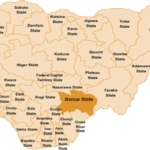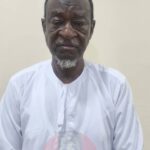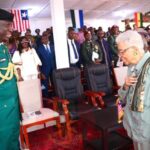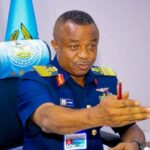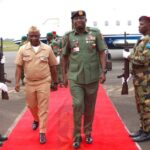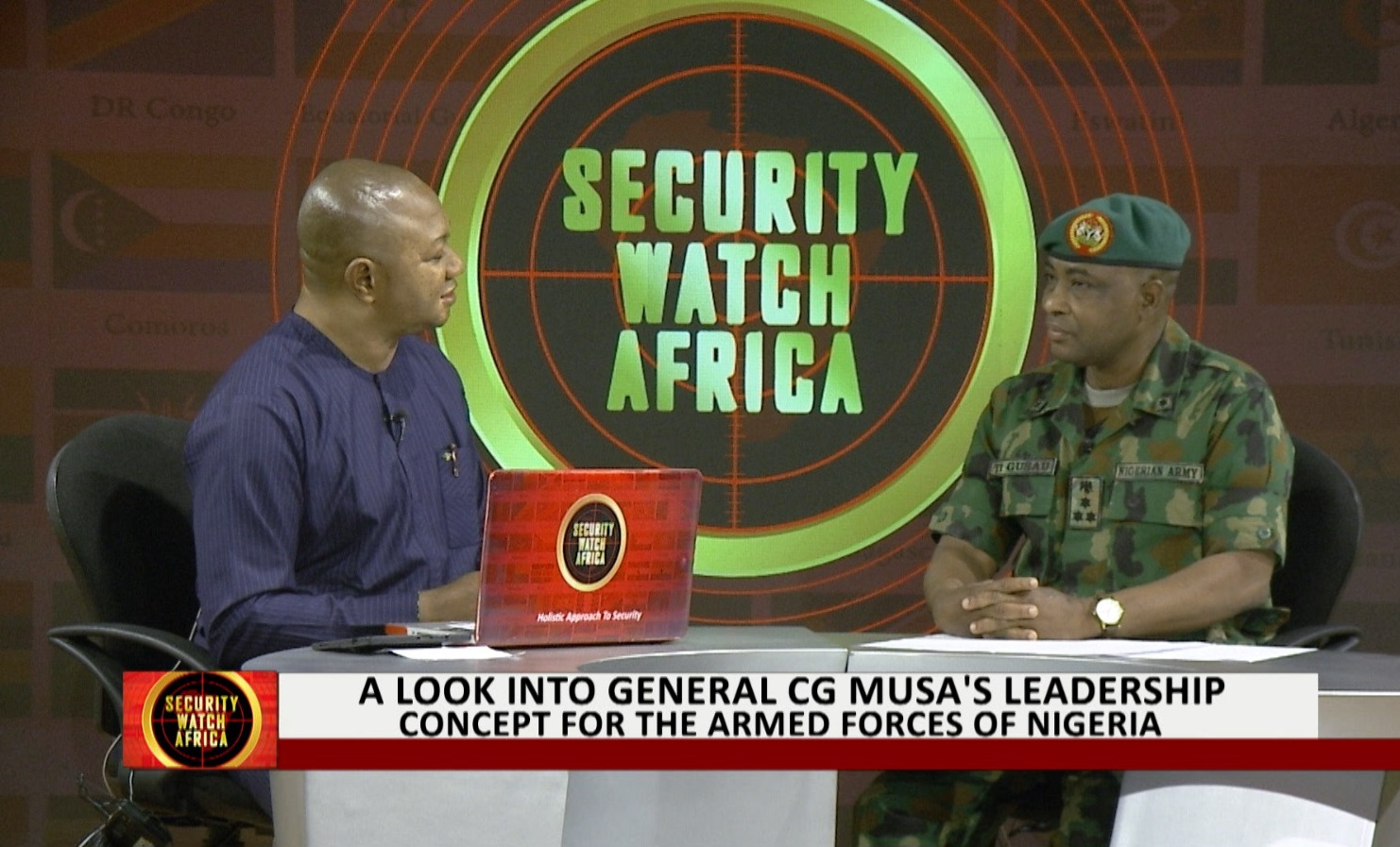By Augustine Ehikioya
To overcome the evolving security challenges in Nigeria, the Chief of Army Staff (COAS), Lieutenant General Waidi Shaibu, has harped on the need for adaptive and holistic approach in the conduct of operations.
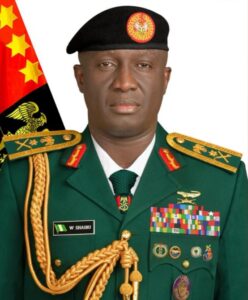
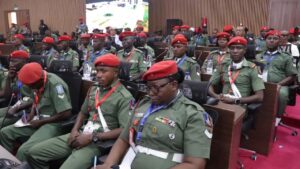
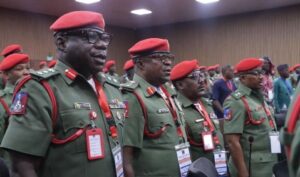
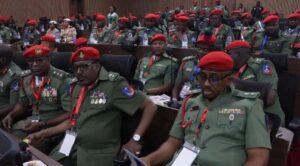
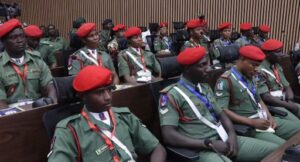
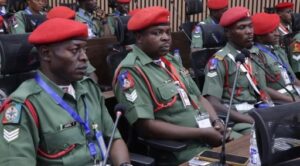
He made the remark in Abuja while declaring open the 2025 Nigerian Army Corps of Military Police Bi-Annual Training Workshop. Security Watch Africa (SWA) was there.
It was themed “Enhancing The Professional Competencies Of The Nigerian Army Corps Of Military Police Personnel To Effectively Discharge Its Responsibilities In Support Of Nigerian Army In a Joint And Multi – Agency Environment”
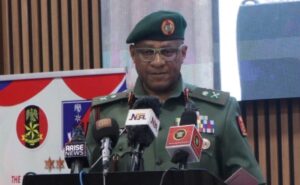
The COAS, who was represented at the occasion by the Chief of Training Nigerian Army, Major General Valentine Okoro, noted that they must cultivate the culture of continuous learning, drawing insights, not only from the professional forums such as the workshop, but also from real life professional experiences.
“However, the increasingly complex and evolving nature of today’s security landscape demands a more adaptive and holistic approach to the conduct of our operations,” the COAS stated.
The event, he said, is special, as it’s the first Military Police training workshop to be held in 10 years.
The COAS said that the observed gap informed his decision to approve the workshop in order to sustained professional development.
The theme of the workshop, according to him, is apt.
“By integrating lessons from the field with intellectual reflections and doctrinal innovation, we can refine our strategies, enhance operational effectiveness and maintain strategic advantage required to secure our nation.
“In this regard, as the custodians of the discipline required to achieve these lofty goals, gentlemen, you must therefore continue to lead by example.
“The scheduled lectures for this seminar was specifically selected to agitate curiosity and interest you the participants, and ultimately enhance your professional competencies,” he stated.
Urging them to take full advantage of the opportunity to deepen their understanding of the intricacies of their field, he said they should not only enhance their individual proficiency, but also translate them into improved effectiveness in the discharge of their duties.
“I therefore urge you all to bear in mind that this workshop is not just a routine engagement, but the strategic intervention aimed at bridging observed training gaps that have existed over the years.
“I urge you all once again to make the best use of this opportunity to better yourselves as military police officers and soldiers for the benefits of the Nigerian Army,” the COAS added.
He commended the Provost Marshal for the initiative of organising the training workshop.
On behalf of officers and soldiers of the Nigerian army, the COAS also expressed gratitude to President Bola Tinubu for his steadfast support and strategic guidance to the Nigerian Army.
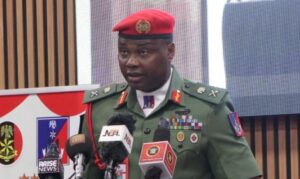
On his part, the Provost Marshal (Army), Major General Mathias Erebulu, noted that the event is a significant milestone, been the first comprehensive training workshop since year 2013.
Apart from the stoppage of the training for a long time, he said, that it’s also important to enhance the capabilities, professionalism and operational effectiveness of the corps in today’s dynamic security landscape.
“The primary aim of this workshop is to foster the cross fertilization of ideas and strategic thinking that would empower Nigerian Army Corps of Military Police personnel to effectively respond to contemporary security challenges together, we will explore innovative strategies to position the Corps at the forefront of excellence in law enforcement and security operation within the Nigerian Army.”
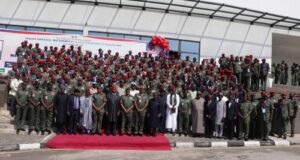
Towards realisation of the theme and the workshop objectives, he said that series of lectures have been put together.
“These will cover vital areas, including major police investigations as indispensable tool for law enforcement within the Nigerian army, the role of military police in bolstering regimentation, providing barrack security, prevention of arms and ammunition, test in operation areas, among other.”



